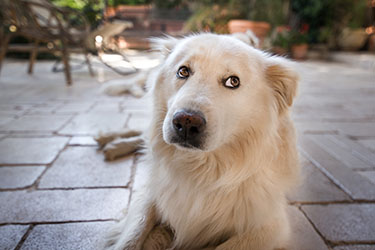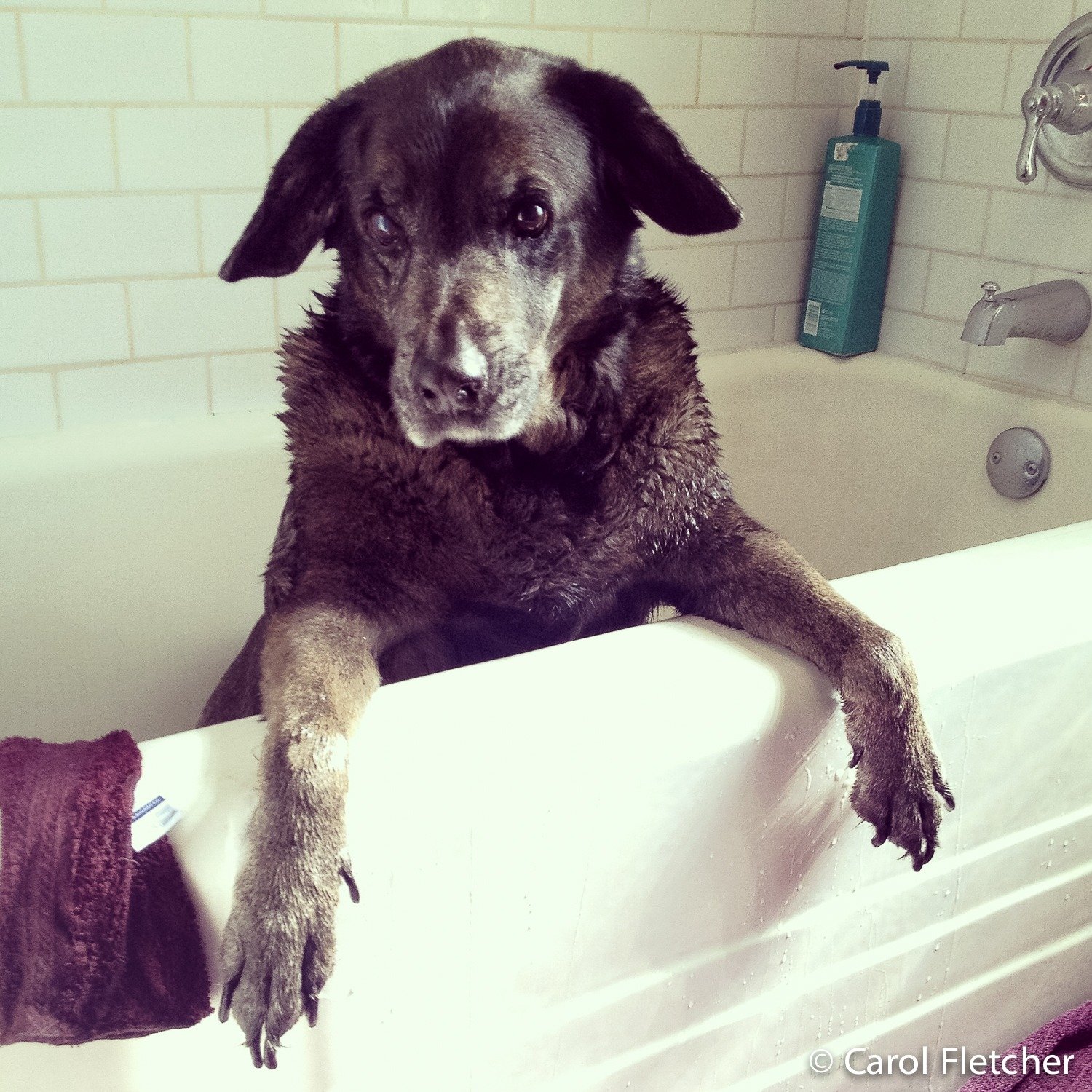If a pet is sprayed in the eyes by a skunk, immediately flush the eyes with water. When a pet is spread in the eyes by a skunk, it can cause discomfort and lead to further eye issues if not addressed promptly.
To provide immediate relief, carefully flush the eyes with cool water for several minutes, ensuring the water flows from the inner corner of the eye toward the outer corner. This will help remove skunk spray residue and soothe irritated eyes.
After flushing, seek veterinary care to assess the pet’s eye health and determine if additional treatment or medication is necessary. Remember, swift action is crucial to minimize the pet’s discomfort and prevent any complications arising from skunk spray in the eyes.
:strip_icc()/BabySkunkTrio186502258-57bc3d935f9b58cdfd14c1f4.jpg)
Assessing The Situation
If your pet gets sprayed in the eyes by a skunk, quickly assess the situation. First, gently flush their eyes with water to minimize any discomfort or damage. Next, seek veterinary advice to ensure proper treatment and follow-up care.
Understanding The Dangers
Approaching The Pet Safely

Immediate First Aid
If your pet gets sprayed by a skunk in the eyes, act immediately. Flush their eyes with water for at least 10 minutes to relieve irritation and prevent damage. Seek veterinary assistance for further treatment.
Rinsing The Eyes
When a skunk sprays a pet in the eyes, immediate first aid is crucial to prevent further discomfort and potential damage. The first step is to rinse the eyes thoroughly with water. Ideally, this should be done in a sink or with a garden hose outside to avoid spreading the skunk odour inside the house. Use lukewarm water and gently pour it over the affected eye(s), ensuring that the water flows from the inner corner of the eye to the outer corner. Continue rinsing for a few minutes to effectively flush out any skunk spray residue.
Minimizing Further Exposure
After rinsing the eyes, minimizing further exposure to the skunk spray is essential. Begin by moving the pet to a well-ventilated area to reduce the intensity of the odour. Keep the pet away from any fabrics, furniture, or carpets that could absorb and retain the skunk odour. If possible, bring the pet outside or keep them in a garage until the smell diminishes.
While avoiding direct contact with the skunk-sprayed areas is essential, it’s also necessary to prevent the pet from rubbing their eyes with their paws. This can further irritate the eyes and potentially spread the skunk spray residue to other parts of their body. A cone collar or a pet-friendly alternative can help prevent the pet from scratching or touching their eyes.
Professional Treatment And Follow-up
If your pet gets sprayed in the eyes by a skunk, seeking professional treatment and follow-up care is important. A vet will provide the necessary treatment to relieve discomfort and prevent potential complications. Regular follow-up visits ensure that your pet recovers fully and any underlying issues are addressed.
Contacting A Veterinarian
If your pet has been sprayed in the eyes by a skunk, it is crucial to contact a veterinarian immediately. They have the expertise and experience to provide professional treatment and guide you through follow-up care. Don’t hesitate to make that call, as time is of the essence regarding your pet’s eye health.
Monitoring And Additional Care
Once you have contacted a veterinarian, they will likely advise you on how to monitor your pet and provide additional care. Here are some essential steps you may need to take to ensure your pet’s recovery:
- Keep your pet in a calm and quiet environment to reduce stress levels and promote healing.
- Gently flush your pet’s eyes with clean, lukewarm water to help remove skunk spray residue. Use a clean cloth or sterile saline solution for this purpose.
- Observe your pet for any signs of discomfort, such as excessive tearing, redness, swelling, or squinting. These may indicate an infection or injury requiring further treatment.
- Avoid touching or rubbing your pet’s eyes, as this can lead to further irritation or damage.
- Administer any prescribed eye drops or ointments as directed by your veterinarian. Follow the dosage instructions carefully and complete the full course of treatment.
- Prevent your pet from scratching or pawing at their eyes by using an Elizabethan collar, which will help protect the affected area and prevent further injury.
Remember, even if your pet seems to be recovering well, it is essential to schedule a follow-up appointment with your veterinarian to ensure that their eyes have completely healed. This appointment will allow the veterinarian to assess your pet’s progress and make any necessary adjustments to their treatment plan.
By following these steps and seeking professional treatment and follow-up care, you can give your pet the best chance of a quick recovery from being sprayed in the eyes by a skunk.

Frequently Asked Questions For What To Do If A Pet Is Sprayed In The Eyes By A Skunk
How Can I Safely Remove Skunk Spray From My Pet’s Eyes?
To safely remove skunk spray from your pet’s eyes, rinse them with cool water for at least 10 minutes. Avoid using soap or vinegar, as they can cause further irritation. After rinsing, gently dab the area with a soft cloth and apply a pet-friendly eye rinse solution recommended by your veterinarian.
Can Skunk Spray Damage My Pet’s Eyes?
Yes, skunk spray can irritate and potentially damage your pet’s eyes. The spray contains sulfur compounds that can cause redness, swelling, and even temporary blindness. It’s essential to promptly flush your pet’s eyes with water to minimize the risk of eye damage and seek veterinary care if necessary.
How Soon Should I Seek Veterinary Care If My Pet Is Sprayed In The Eyes By A Skunk?
If your pet is sprayed in the eyes by a skunk, it’s best to seek veterinary care as soon as possible. Skunk spray can cause discomfort and potential eye damage. A veterinarian can thoroughly examine your pet’s eyes, provide appropriate treatment, and prescribe any necessary medication to alleviate symptoms and prevent complications.
Conclusion
Prompt action is crucial if your pet is sprayed in the eyes by a skunk. To effectively handle this situation, remember to prioritize the safety of your beloved companion. By flushing their eyes with a specialized solution, seeking veterinary care, and taking preventive measures, you can ensure their swift recovery.
Staying calm and aware is critical to effectively tackling this unexpected challenge.


